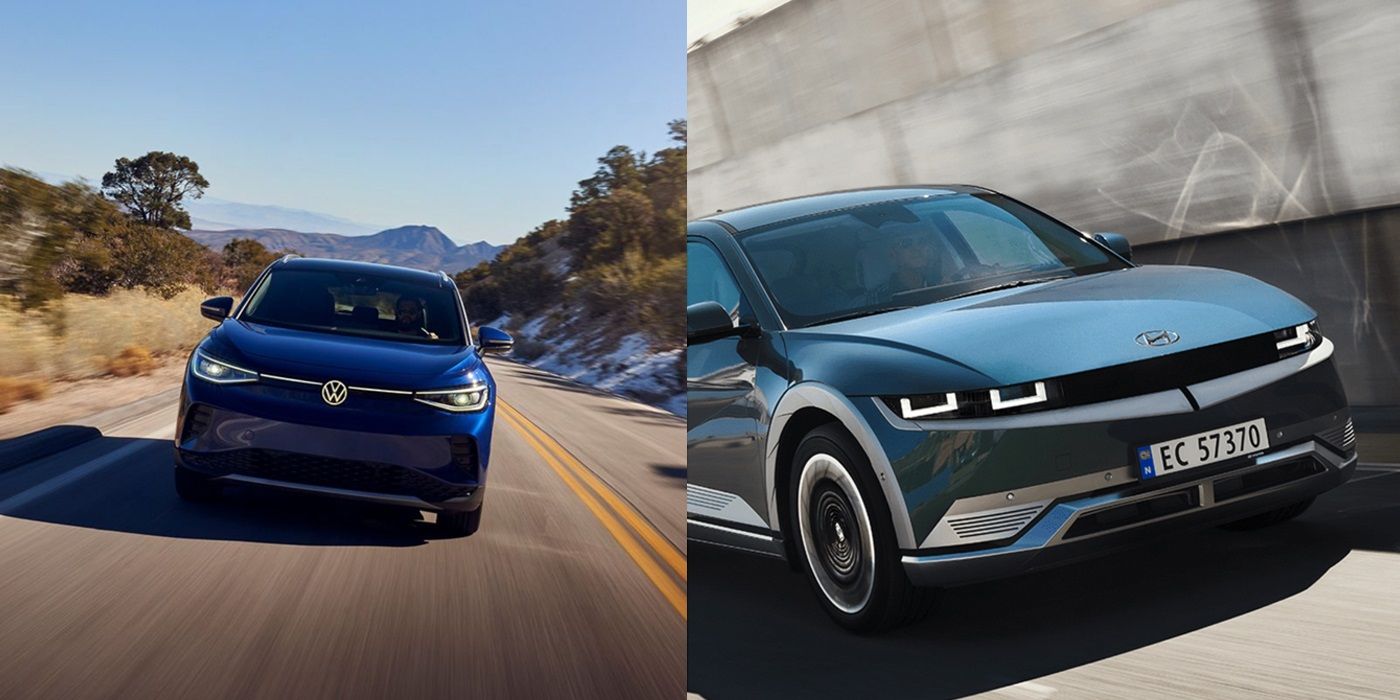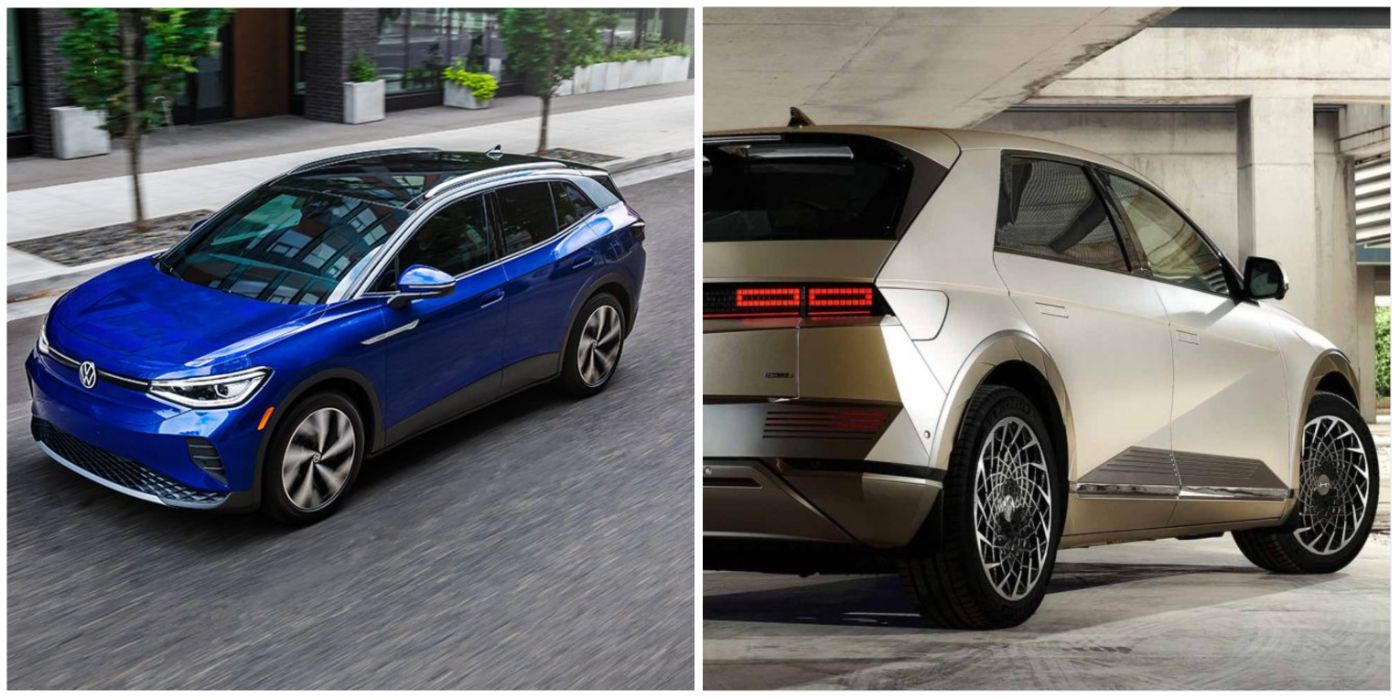The VW ID.4 and the Hyundai Ioniq 5 EV offer good features, driving range, and value for money. With gas prices going up almost every day, many homes are starting to consider electric cars as a possible solution. A few years ago, only Tesla's electric cars were a viable option for the masses. In 2022, however, customers have the option to choose from a wide variety of car manufacturers.
Companies like Porsche, Audi, and BMW have pledged to electrify their entire fleet of cars in the near future. Non-luxury car makers like Hyundai, VW, Renault, and many others are also on track to release a viable, mass-market EV. Hyundai, in particular, grabbed attention with its value-for-money offering, the Kona EV. It comes with a relatively high driving range and performance. Similarly, VW made a huge splash with its ID.3 electric hatchback, an affordable EV built on a modern skateboard architecture.
The Hyundai Ioniq 5 and the VW ID.4 are two new electric SUVs. Both offer a decent driving range and are relatively affordable for most buyers. In terms of design, though, these cars are worlds apart. The Hyundai Ioniq 5 incorporates retro and future design elements resulting in a car that’s sure to turn heads wherever it goes. Meanwhile, the VW ID.4 is designed like a conventional compact SUV, seamlessly blending into the crowd for those that prefer this type of design.
Top Features Vs. Affordability
The Hyundai Ioniq 5 is available in a Dual Motor All-Wheel Drive and a Single Motor Rear-Wheel Drive setup. Users can additionally choose between two battery sizes for the RWD variant. The top-spec Hyundai Ioniq 5 offers up to 225 hp and 446 lb-ft of torque. In contrast, the VW ID.4 is available in Single Motor RWD and Dual Motor AWD variants, and offers two battery options. In terms of performance, the VW ID.4 can produce up to 295 hp and 339lb-ft of torque.
The Hyundai Ioniq 5 EV offers a connected dual-screen layout comprising a driver-side screen and a 12.3-inch infotainment display. The Hyundai Ioniq 5 also comes with the new Highway Driving Assist 2 system. The company's autonomous driving tech helps perform automatic lane changes, keeps the car in its lane, manages the vehicle speed, and monitors side traffic on its own. The VW ID.4 also comes with two screens with wireless Android Auto and Apple CarPlay. The autonomous driving system on the VW ID.4 is similar to the HDA 2 on the Hyundai Ioniq 5 but misses out on automatic lane change support. The rear seats on the Ioniq 5 are pretty spacious and can slide to change the boot’s default size of 27.2 cubic feet quite easily. In comparison, the VW ID.4 offers relatively less interior space but compensates with a bigger 30.3 cubic feet of boot space.
In terms of driving range, the Hyundai Ioniq 5 is rated to offer up to 303 miles and also features an up to 240kW charging rate thanks to an 800-volt battery architecture. The VW ID.4 comes with a maximum of 280 miles of driving range and up to 125kW charging rate. As for pricing, the Hyundai Ioniq 5 RWD with a larger battery probably offers the most value for money and costs around $37,350 after the federal EV tax credit. The VW ID.4 PRO with the RWD model costs around $41,230 for the RWD version and almost $33,730 after the EV tax credit. For those who value a high driving range and more features, the Ioniq 5 is probably the best choice. For users who want a similarly capable EV but on a budget, the VW ID.4 is the one to go for.


